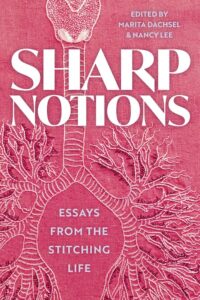April 15, 2024
The M Word Turns 10
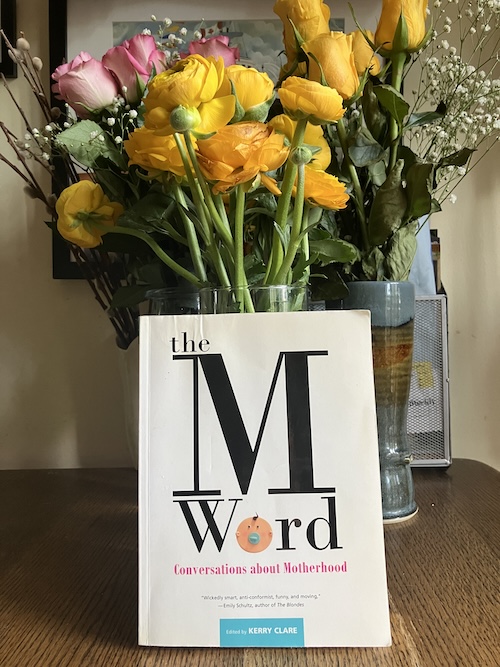
It’s been a decade since THE M WORD arrived in the world, a book that was born because I couldn’t see a reason why stories of motherhood should not include those of women who wanted children they never had, those who never wanted children at all, parenting stepchildren, being mother of children who’d died, experiences of miscarriage, maternal ambivalence, abortion, adoption, single motherhood, motherhood via IVF—AND MORE—could not all be included within a single volume. And what a volume it is. I love this book, and am so grateful to its contributors—including the inimitable Priscila Uppal, who died in 2018—for their generosity in sharing tender and intimate stories with such candour, insight, and brilliance.
Happy Anniversary and thank you to Heather Birrell, Julie Booker, Diana Bryden Fitzgerald, Myrl Coulter, Christa Couture, Nancy Jo Cullen, Marita Dachsel, Nicole Dixon, Ariel Gordon, Amy Lavender Harris, Fiona Tinwei Lam, Deanna McFadden, Maria Meindl, Saleema Nawaz, Susan Olding, Alison Pick, Heidi Reimer, Kerry Ryan, Carrie Snyder, Patricia Storms, Sarah Yi-Mei Tsiang, Julia Zarankin, and the amazing Michele Landsberg.
I’m so proud of this book.
Order a copy wherever books are sold!
April 12, 2024
BOOKSPO Episode 6!
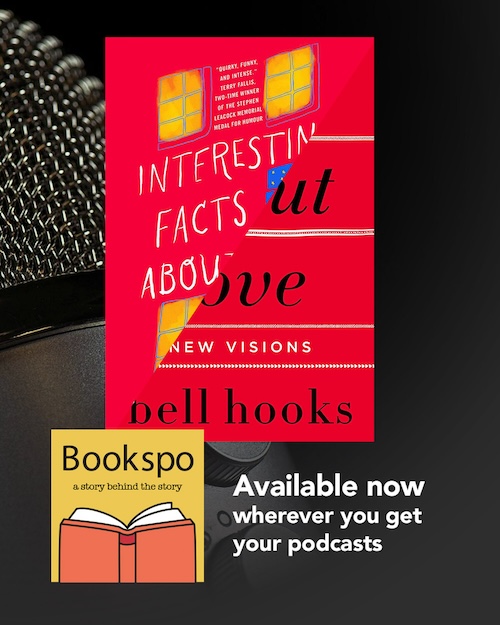
What a delight to bring you this conversation with Emily Austin about her beautiful and hilarious new novel INTERESTING FACTS ABOUT SPACE, how some interesting feedback on her first novel inspired her to deepen her own understanding of love, and how ideas from bell hooks’ ALL ABOUT LOVE found their way into her fiction. Listenhttps://podcasts.apple.com/us/podcast/bookspo/id1733542694 at Apple Podcasts or on Substack.
April 11, 2024
Back Again!

In case you missed me, I was busy buying books all over Northwest England, and having a grand time while doing it. Full report to come in my newsletter on Monday—make sure you’re on the list!
April 1, 2024
BOOKSPO Episode 5!
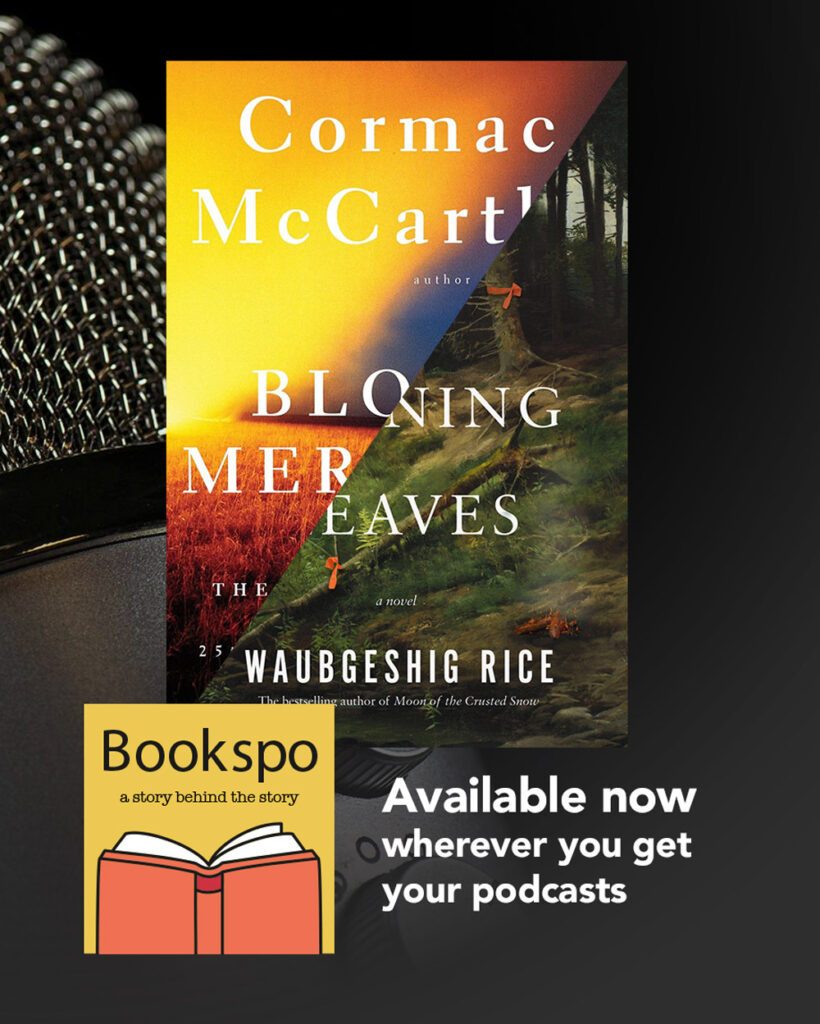
This week on BOOKSPO I’m talking with Waubgeshig Rice about his new novel MOON OF THE TURNING LEAVES—which came out in Canada last fall and was just published in the United States—and how he was inspired by Cormac McCarthy’s 1985 novel BLOOD MERIDIAN to craft a narrative in which the land guides the story. List at Apple Podcasts or on Substack.
March 29, 2024
Katherine Heiny Gave Me Permission
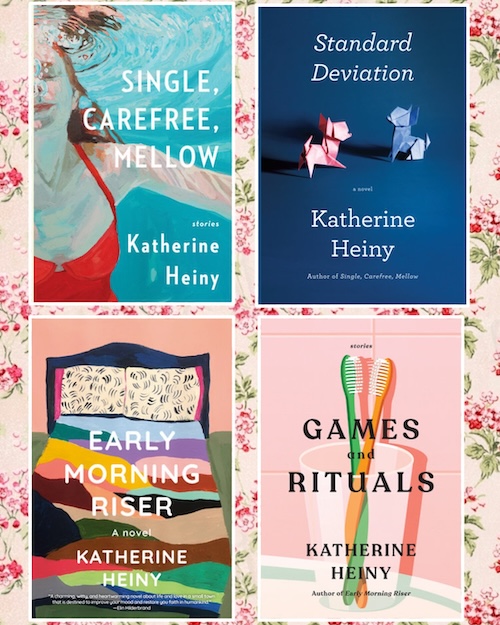
I’m so happy with my latest essay on Substack (which puts me 1/4 of the way toward my goal of writing an essay every month!). It’s called “Katherine Heiny Gave Me Permission”, and I hope you like it too.
This is my last free substack essay—beginning in April, they’re available to paid subscribers only. Because I really appreciate my blog readers for being here all along, I have three free one year paid subscriptions to give away, and two are still available. If you’d like to receive one, email me at klclare AT gmail DOT com and let me know!
March 28, 2024
Gleanings
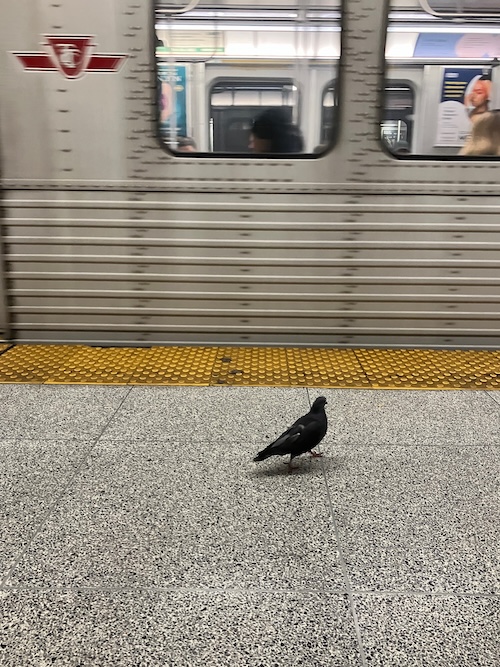
- and I realized that my quiet writing has a relevance to those who are willing to listen. And even if it doesn’t, I need to do it.
- A lot of writers, I can only assume, would feel like they can’t write about a thing unless they’re an expert about the topic, but there’s a lot of activity that happens in the act of learning. That’s where the factual stuff in both of our stories feeds the emotional content.
- How do I know so much about these Mills & Boon romances? Because I snuck into my sister’s books of course. Later I also snuck into my father’s bookshelves and read all the juicy bits from his Harold Robbins books (The Carpetbaggers comes to mind) and Jacqueline Susann (Valley of the Dolls) and Erica Jong’s Fear of Flying along with Leon Uris’s Exodus and others. It was my dad who ignited my love for books and stories early, with his bedtime storytelling. He was born a storyteller.
- Contrast isn’t about what’s better or worse, or right or wrong, it’s not about comparing one thing to another — instead, I think about vibrancy, colours, shadow, texture, depth and height, the common structures of my everyday, and how routines and patterns might be shifted to bring even more enjoyment, pleasure, delight to my mind.
- When I told my boyfriend that I wanted to die, he hung up on me. I was seventeen and sitting in my basement, winding a phone cord round and round my fingers.
- But even with words to wrap around it—English, Welsh, and otherwise—I am so often so unsure of what those I love are thinking, seeing, forgetting, remembering. That doesn’t mean they’re disappearing. It means they’re only partially perceptible to me.
- It’s a litmus test for me to know who my people are and it almost always works. For some people it’s astrology. For me, it’s the blind recklessness of youth and how it did or didn’t define us. How we grew ourselves from the filth of our regret. Found purpose from our accidents. Failed and got back out there.
- First customer is looking for a hand puppet for a gift. I show her a giraffe and she says pointedly No Giraffes! and I wonder what happened there.
- There is something special about living on an island. I see it in the faces of strangers when I mention we live on an island. They look at us with astonishment, surprise, and sometimes, envy. They ask a hundred and one questions. Is it expensive to take the ferry? What is health care like? Are there wild animals? Does everyone know each other’s business? Have you been welcomed into the island community? What is there to do on an island?
- It was the flashing bitcoin sign in the window that caught my eye, maybe because I’d heard that crypto is sky-rocketing. I’ve walked past this corner shop over a hundred times, and until last week, I’d never noticed how charming it is.
- For me, this moment was a clear provocation for us to think about Mina’s own project. Is it possible to tell the story of Peter Manuel’s crimes in a way that doesn’t take anything more away from its victims, that doesn’t itself cause fresh harm? Is there a way for us to read about the case that is neither uncaring nor, like the weeping woman, intrusive? It isn’t our loss, after all; it isn’t our daughter. What right do we have to want to know all of this?
- And this is a lot of what my book, Apples on a Windowsill, is about. The details of a life, of still lifes — that intersection. It is also in the category, relationship-lit, and the narrative which can be pieced together in the (un)connected/standalone essays has to do with how the F do women make a creative life for themselves. Like, what is the narrative now, what are the possibilities? And also what are the obstacles in the 21st century…
- We must harness everything we have, everything we do. We must use every part of our books as bridges, leave no margins. We must build belonging.
- “People label our country undeveloped or developing,” a sweet human shared with me last night, “we say yours is developed because there is much material wealth, but what about the people … are the people developed? Developed countries, with many undeveloped people.”
- It’s cooler in Melbourne today, the tail end of Summer has swished out of sight and Autumnal weather is shuffling in. Just one more hot day, perhaps, and then we’re fully Fall. I hope. I woke up very early but stayed snuggled down, making the most of that snug feeling that’s been absent for so many months.
March 28, 2024
BOOKSPO: Psychological Thriller Edition!
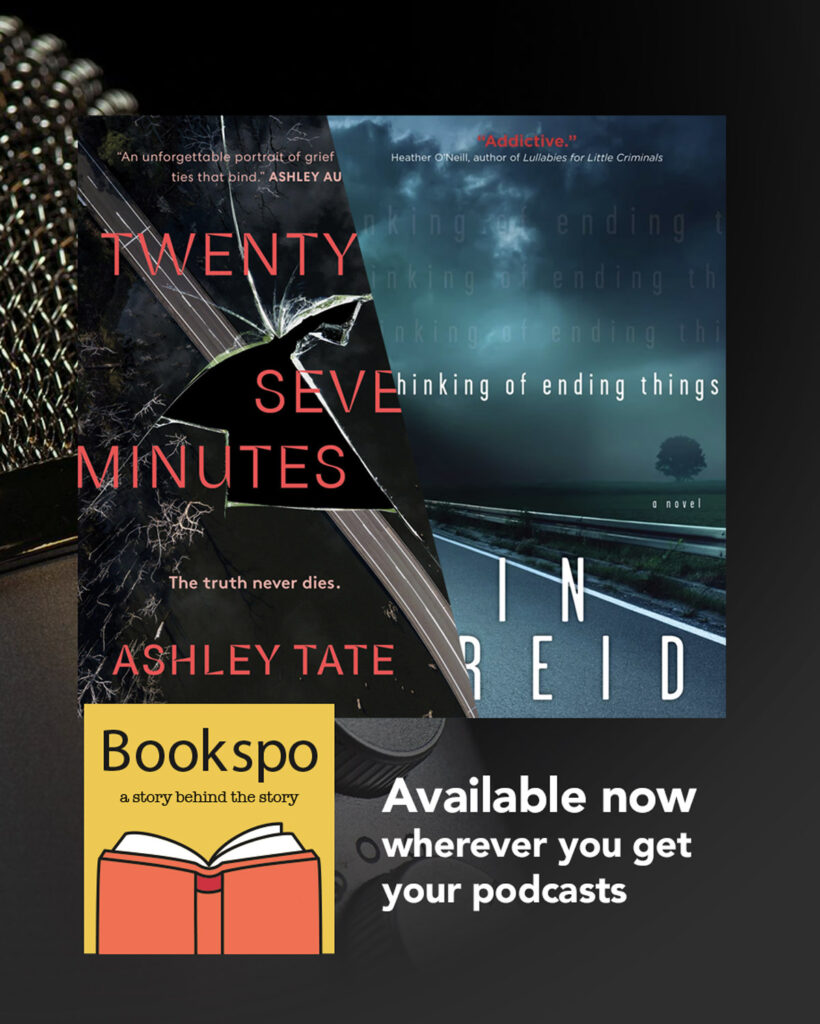
This time I’m talking with Ashley Tate, bestselling debut author of TWENTY-SEVEN MINUTES, about how reading Iain Reid’s smash hit novel I’M THINKING OF ENDINGS gave her permission to write the blendy psychological thriller-literary mash-up of her dreams (or worst nightmares?). Listen at substack or Apple podcasts or most places where you can get your podcasts!
March 28, 2024
Sharp Notions: Essays from the Stitching Life, edited by Marita Dachsel and Nancy Lee
I’ve been around for a little while, and I think it’s safe to say that Sharp Notions: Essays from the Stitching Life, edited by Marita Dachsel and Nancy Lee is the best literary anthology I’ve ever read. It’s a beautiful volume, as aesthetically as pleasing as you’d expect for a book about art, a beautifully crafted object in its own right, complete with colour photography of beadwork, quilts, Kelly S. Thompson’s knitted bull terrier, a conversation in embroidery, and needlepoint.
I’m not actually sure of what the difference is between embroidery and needlepoint (I’m a lapsed knitter myself, without much of a stitching life at all) but I still really loved this book, the different approaches of its essayists, the capaciousness of “the stitching life” in general and its connection to many different backgrounds and traditions, which means that every reader has something new, and fresh, and inspiring to say.
A common thread (oh, no. I’ll stop…) is the way that various kinds of stitching have sustained the writers through periods of difficulty, how needle crafts have managed to be transportive at moments when the crafters themselves weren’t going anywhere. My favourite piece was Jess Taylor’s, a meditation on pain, healing, trauma, and productivity. I loved Anne Fleming on knitting and gender; Danielle Lussier on bringing Indigenous beading traditions to her PhD thesis; Laura Cok on infertility and knitting for a pregnant friend’s baby; Lorri Neilsen Glenn on the stitches that have been with her throughout her life; Rob Leacock on knitting as a way to be alone; Carrianne Leung on stitching her way through pandemic days; and Theresa Kishkan (such a beloved writer!) on stitching through uncertainty.
These essays are stories of connection, with the past, present, and future. Stories of creation, solace, and possibility. These are stories of kinship, and it’s a privilege to join the fold through reading.
March 21, 2024
The Books Themselves
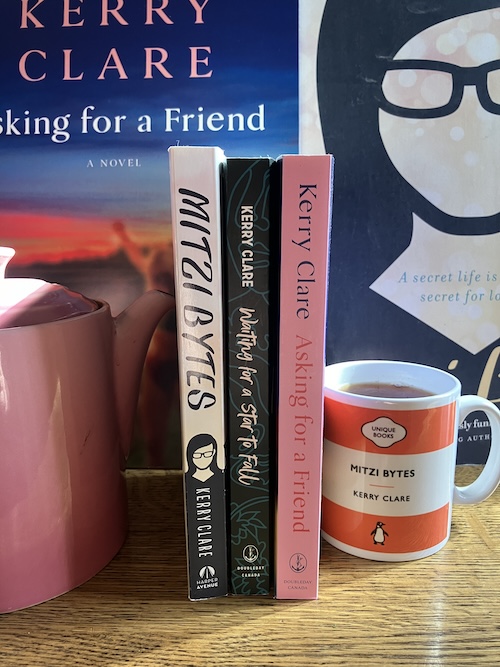
Last week marked seven years since the release of my first novel, an occasion I didn’t mark as in years past because I’m trying to be more honest and human about my publishing experiences (as opposed to, like, posting, say “WOO HOO BIG BOOK TOUR ENERGY!” posts when it’s just me eating crullers at a series of Tim Hortons across Southern Ontario).
I’ve been really lucky and privileged to have published three novels in total, but it’s never been like how I thought it would be, I’ve never received the validation that my books are real, that I’m legit. I’ve never made a major bestseller list, I’ve never had any of my books nominated for an award, let alone won one. In many ways, trying to pass in the world as a bonafied author has felt more like a series of embarrassments and humiliations that anything else, and I know I’m not alone in this, it’s just too mortifying for most people to say it out loud (and everybody else is John Grisham).
It helps a lot, however, to divorce my books from the idea that they exist to solidify my identity as an author and my sense of self-worth, to look elsewhere for the latter, to freaking get over myself in regards to the former (I think about Annie Dillard’s line, “…he himself likes only the role, the thought of himself in a hat…”)
To think of the fact of these books in themselves, as singular creations rather than as extensions of me. To consider how true I was able to be to my vision for all three of them, how I’m able to open any one of them at any page and start reading, and think, “This is a book I’d like to read.” How proud I am of the secret subversion in each of these stories, the poignancy, the humour, and how they lift up, complicate, and celebrate women’s lives and women’s stories.
Here are, at least, three parts of my author life of which I wouldn’t change a single thing.
March 20, 2024
First Day of Spring
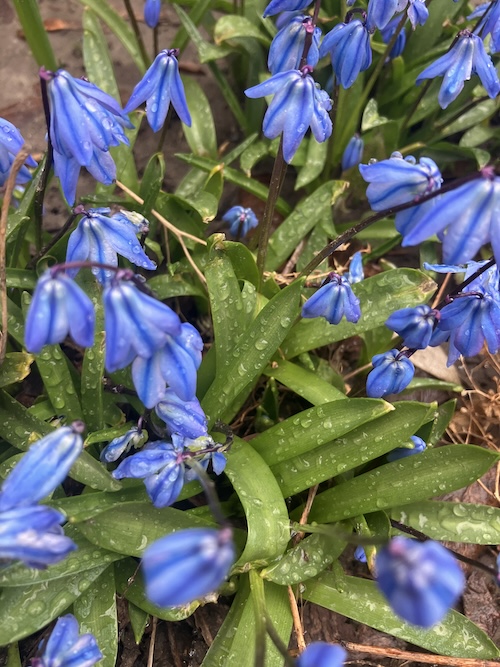
How to begin? I think I’ll start with my bona fides, even though its kind of obnoxious. I don’t own a car, I use public transit, I wash and reuse plastic bags, I hang my laundry to dry, I’ve banished serviettes in favour of secondhand cloth napkins, I make monthly charitable donations to the Nature Conservancy of Canada, I’m not a jet-setter, all my clothes are secondhand or from local designers, I’ve been refilling the same dish soap container for half a decade now, I only vote for politicians with climate plans, I eat meat just once a week if that, save veggie scraps for soup stock, I buy specialty toothbrush heads and mail them to be recycled, for heaven’s sake. I could go on, but I won’t. I know that climate change is real and I do a lot within my limited sphere of influence to do what I can to make a difference. I think this matters.
I think it’s also worth noting that I have anxiety, something I’ve probably always lived with, but which became untenable not long after the period in which people were marching around in the streets with signs that said, “WE WANT YOU TO PANIC!” Just following orders, and so I did, and eventually learned that years of panicking does a number on one’s psyche. At the end of 2022, I had a breakdown, the perpetual alarm bells going off in my head apparently serving no one, least of all me, and the natural world was certainly no better off for any of it.
Can we also talk about the weird Puritanicalism that people have always had about the weather? They’re either complaining about rain, or saying we’ll pay for it later. As though there is a ledger, and if anyone ever dare enjoy anything too much (at all?), we’ll all end up with the wrath of God. I remember a comment from the podcast Offline about how at some point about a decade ago on Twitter, it became established that maybe everybody should just be feeling bad all the time. Sometimes living in the year of our lord 2024 feels a little bit like living in the town from Footloose.
This time we’re living in right now is really tough for all kinds of reasons, and so many people are going about making it even harder by insisting that all of us need to feel guilty and anxious about sunshine on our shoulders, that we ought to read ominousness into unseasonable warmth in mid-March. (And when it snows a week later, no one even sends up a follow-up note telling us it’s fine to take a day off from existential dread!)
I get that most of those people are simply working through their own climate anxiety. I also have come to understand that other people’s anxiety is a huge trigger for me, that I feel compelled to manage and control it, and so I’m trying to step away from writing posts that are thinly veiled attempts at that. This is not what this. Instead, this post is an assertion about how I refuse to feel about a beautiful day. You only get so many beautiful days in a lifetime, and I’m taking every one.
Because feeling bad about a beautiful day makes nothing better, and, even worse, I fear that it acts to further disconnect people from the natural world. And yes, it’s discombobulating and upsetting to see the natural world offset from its natural rhythms. I’m going to tell you that I haven’t photographed a single snowdrop this year, because they emerged in mid-February, there’s been scarcely snow at all, and something about that wrongness is heartbreaking, but the snowdrops being too sad is not the way to approach all this. We owe the snowdrops better.
The caveat, of course, is the bonafides I started with. The status-quo is not sustainable. But also can we note the resilience of nature? The way that living things find a way, these tender shoots that emerge in spring, but which aren’t tender at all, and have always survived through snowstorms and ice-storms, and warm Februaries too? Faith and hope can’t be the only things—again, see my bona fides. Action is necessary, but if you’re already taking action, faith and hope are far from nothing, and you’re allowed to enjoy a sunny day.
